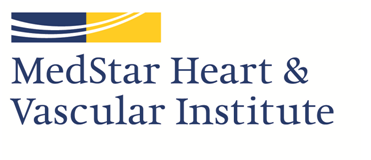MedStar Heart & Vascular Institute First in State to Implant WATCHMAN Device

Offers A-fib Patients Alternative to Blood Thinners and Reduces Stroke at MUMH
BALTIMORE—(January 11, 2016) — Physicians at MedStar Heart & Vascular Institute at MedStar Union Memorial Hospital became the first in the state to successfully implant the WATCHMAN™ device in patients with the most common type of heart arrhythmia, called atrial fibrillation (A-fib). The device eliminates the need for patients to stay on long-term blood thinning medications and significantly reduces the risk of stroke.
More than five million Americans are affected by atrial fibrillation, a cardiac arrhythmia in which the heart beats at a fast or irregular pace. Episodes of A-fib can slow down the blood leaving the heart, causing it to stagnate and form clots. If the clot is carried by the bloodstream and lodges in an artery leading to the brain, a stroke occurs. “And of course we know the result of that can be devastating,” said David Schamp, MD, chief of electrophysiology at MedStar Union Memorial Hospital. “Patients are often prescribed blood thinners to reduce the chance of clotting, but they are at risk for bleeding and have to be closely monitored while on them.”
“We’re very proud of the advancements that make our integrated and comprehensive approach to A-fib at MedStar Heart & Vascular Institute unique in Maryland,” said Dr. Wang. “Being able to offer the WATCHMAN device means having a greater arsenal of treatment options to help manage arrhythmias. Being the first in the state of Maryland to offer this technology speaks to the cutting edge nature of the structural heart program at MedStar Union Memorial Hospital.”
In a procedure that lasts under an hour, the WATCHMAN device is inserted through a small catheter placed in the groin area. It is then implanted in the atrium of the heart to close off an area called the left atrial appendage (LAA), where blood collects and form harmful clots in patients with A-fib.
By way of a transesophageal echocardiogram, cardiologist Momina Mastoor, MD, director of the echo lab, teams with Drs. Wang and Schamp during each procedure to ensure precise visualization of the chambers of the heart and LAA to ensure precise positioning of the WATCHMAN device.
By closing off the LAA, which is believed to be the source of the majority of stroke-causing blood clots, the risk of stroke can be reduced. Over time, heart tissue grows over the WATCHMAN device, permanently sealing off the LAA. Most patients will be able to discontinue the use of blood thinners after 45 days.
The WATCHMAN device is implanted in MedStar Union Memorial Hospital’s cardiac catheterization laboratory. Most patients typically stay overnight in the hospital following the procedure.
As always, patients should discuss all options with their physicians to determine if the WATCHMAN device is appropriate for their condition.
For more information on the WATCHMAN device, go to: www.MedStarUnionMemorial.org/Watchman
###
About the MedStar Heart & Vascular Institute
MedStar Heart & Vascular Institute is a network of highly acclaimed and nationally recognized cardiac experts and care programs spanning all 10 MedStar Health hospitals in the mid-Atlantic region. In the Baltimore area, MedStar Heart & Vascular Institute experts are accessible at MedStar Franklin Square Medical Center, MedStar Good Samaritan Hospital, MedStar Harbor Hospital, MedStar Union Memorial Hospital, and more than a dozen community locations. MedStar Heart & Vascular Institute at MedStar Union Memorial Hospital is allied with the Cleveland Clinic, the nation’s #1 heart program, giving patients accelerated access to the most advanced research, technologies and techniques in cardiology and cardiac surgery. This alliance also strengthens excellent clinical care and enables high-level collaboration on research.
About MedStar Health
MedStar Health is a not-for-profit health system dedicated to caring for people in Maryland and the Washington, D.C., region, while advancing the practice of medicine through education, innovation and research. MedStar’s 30,000 associates, 6,000 affiliated physicians, 10 hospitals, ambulatory care and urgent care centers, and the MedStar Health Research Institute are recognized regionally and nationally for excellence in medical care. As the medical education and clinical partner of Georgetown University, MedStar trains more than 1,100 medical residents annually. MedStar Health’s patient-first philosophy combines care, compassion and clinical excellence with an emphasis on customer service. For more information, visit MedStarHealth.org.









